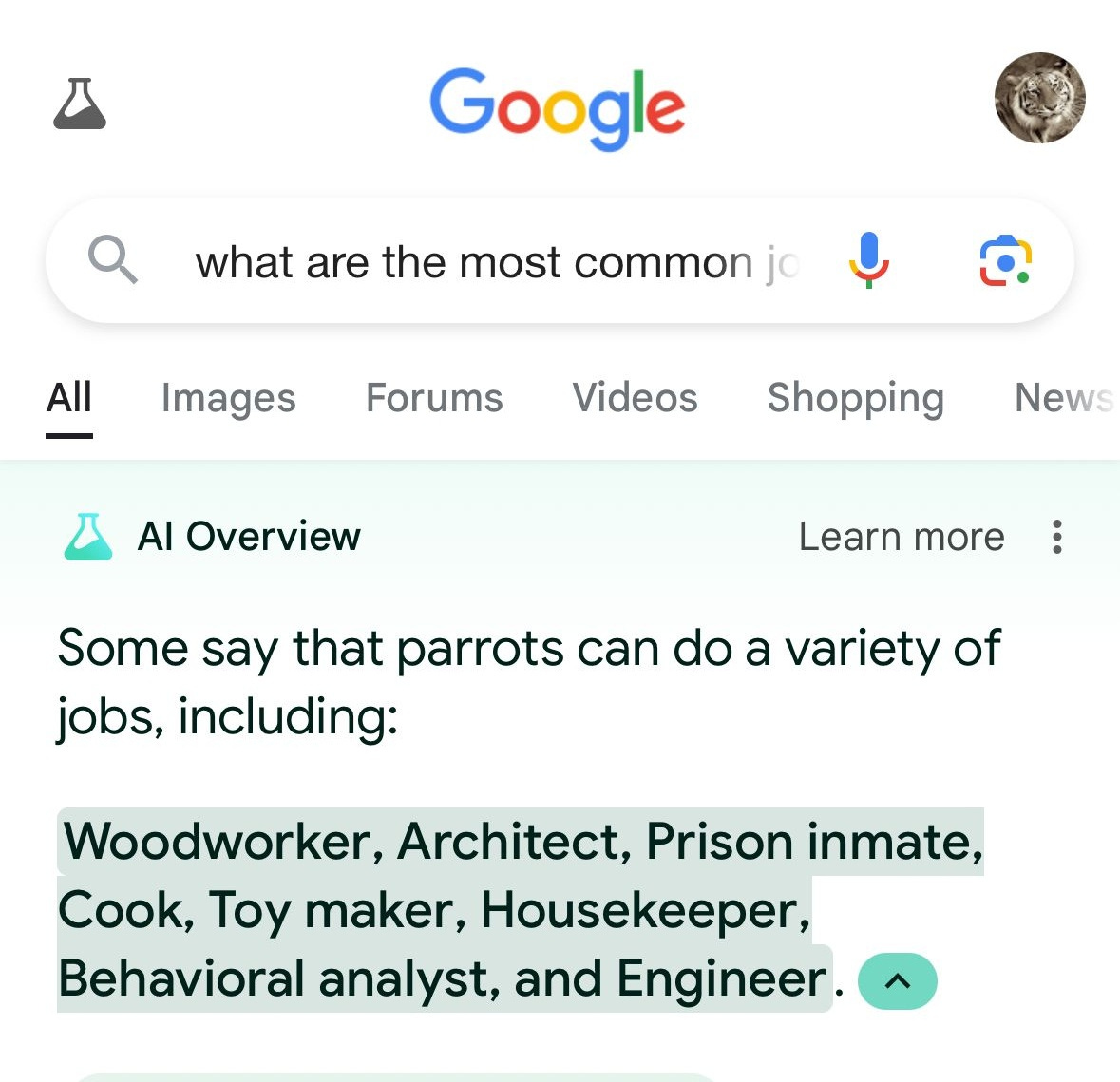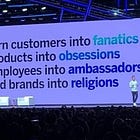The universe contains many mysteries: What happened to Jeffrey Epstein? Why did Ted Cruz’s father kill JFK? Did the CIA fake the moon landing? The biggest one to me is how anyone can look at Mark Zuckerberg or Elon Musk or Sundar Pichai or Sam Altmann and think, “I want this guy’s vision for the future!” These Silicon Valley titans want whatever’s next because there’s money in it, but they’re not fundamentally very interested or adept in maintaining the new realities they shape.
About $46 billion has been sunk into the Metaverse, and although the Pixar-animated Toy Story came out in 1995, the character that tortures toys looks more humanesque than Mark Zuckerberg does in his virtual world. Metaverse took the concept of Zoom meetings and thought they should have a backdrop that looks like the animations that bowling alleys display when you roll a spare; meanwhile, everyone else looks like the guests at Roller Coaster Tycoon. Twitter is an unusable shipwreck, and it’s oversaturated with content farm accounts called “Historic Vids” that repost TikToks of teenagers shitting themselves while zooming down a waterslide, which doesn’t quite scan as a pivotal moment in history. All the replies are blue-checks saying “I used to love waterslides until Biden made them woke” or sexbots with their tits fully exposed on their timeline asking, “Should we waterslide together?” The app spams with notifications to inform users that “Elon Musk tweeted ‘Exactly’” in response to some dog-brained conspiracy theory about how the Brooklyn Bridge will collapse because of DE&I hires. The public utility of letting these cretinous capitalists run our social media networks remains poignantly unclear, especially as their sites give the vibe of a Waffle House at 3 AM and the manager is greeting everyone at the front door by handing them knives.
In this oafish corporate arms race to create technology that feels current, these bubbleheaded executives are more concerned with appearing forward-looking, futuristic, and iconoclastic than they are with providing quality service. Take this as another idiot boardroom fantasy of endless growth, cocksure business puds blithely unaware and uninterested in how the platforms and products they sell are borked and only compounding in its borkage over time. AI is both on the continuum of these other busted Silicon Valley fads and at the endpoint. There is something bleakly funny about the industry bumping up against the limits of its actual capabilities and simply pivoting to more ambitious marketing. The cash is there to sustain this gimmick for a while longer, but the output manifestly is not. Amazon’s alleged cashier-free grocery stores were revealed to employ a thousand people from India to watch shoppers check out their items through a camera; this alleged “Just Walk Out” technology was built on the false promise of employing facial-recognition cameras, sensors on the shelves, and “AI”—which we now know means “Another Indian.”
The most general description of AI in its current form is that it is an array of expensive, resource-intensive, environmentally disastrous error-generating machines that run more or less entirely on theft and imitating celebrities without their consent. It has no apparent socially beneficial applications, its only discernable road to profitability is highly speculative, and it vomits prose that is somehow grandiose and anodyne and stilted. It is the apotheosis of Silicon Valley vacancy. A few weeks ago, when Google’s Gemini AI program responded to the search query “How many rocks should I eat each day?” with “at least one rock,” it did not disclose that this extremely funny and incorrect recommendation came from The Onion. When large language models like Gemini or ChatGPT duff basic answers like this, it is because they can not read and asses context and tone, or think, which has not yet been nearly as disqualifying as you might expect. “With the generative AI from Google, OpenAI’s ChatGPT, and Microsoft’s Copilot,” the Washington Post’s Shira Ovide wrote, “you should assume that they’re wrong until proved otherwise.”
Throughout the goofy-gaudy bubble of tech journo weirdos, libertarian economists, people whose business depends upon the promise of AI, and Elon Musk, there is the idea that when this deliriously janky software is constantly spewing weird lies, it is Actually Learning instead of churning out sludge that’s shitting up the internet. Even as these dross machines generate confidently phrased factual errors at scale, it is apparently doing so in the process of becoming more human. This is a strange thing to assert about a technology that, after many billions of dollars of investment and more than a year of psychedelic hype, has lately been advising people to spend five to 15 minutes staring at the sun per day.
Credit where it’s due, no previous technology has given us such a riveting version of Homer Simpson singing Underworld’s “Born Slippy” or can generate images of Jesus Christ, But Made of Shrimp. But because what we’re calling AI fundamentally cannot do any of the things humans do, there is the sense that it’s already bumping up against a lavishly gilded existential ceiling. Of course, this doesn’t matter to the mediocre business types trying to make various numbers go up forever, which is the only idea these people have. You don’t have to be well-versed in political economy to know that a cynical, checked-out, anti-human, fundamentally un-rebuttable demand for stockpiling income is contemporary capitalism’s prevailing imperative.
So the question, which opens onto awful new worlds of dread and possibility, is whether any of this AI nonsense means anything. “The rate of improvement for AIs is slowing, and there appear to be fewer applications than originally imagined for even the most capable of them,” Christopher Mims wrote in the Wall Street Journal. There’s enough money and ambition behind this stuff, and a collection of sufficiently ill-equipped political institutions standing between it and everyone else, that AI could become even more ubiquitous even if it never actually works. It does not have to be good enough to replace human labor to replace human labor; the people making those decisions just have to plow ahead after deciding that it doesn’t matter.
Capitalists can push it forward and institutions can get out of their way, but at some point, people will either take the slop on offer or refuse it. A great deal of this hustle depends on obscuring or ignoring the extremely important difference between creating something and merely generating it. Advertising can be soulless in many ways, but there was something especially deadening and bleak about Toys ‘R’ Us running a commercial completely generated by Sora, especially as it channels the limitless imagination of a child and renders it into soulless, sterile content. AI creativity looks strikingly like human creativity without really quite seeming like human creativity; it is similar, but not right. In the realm of streaming companies and Hollywood studios, the writer’s strike last year revealed how much TV shows and movies are made by companies that seem to not like making TV shows and movies, designed not so much to be enjoyed by viewers as tolerated by them. This, more than any epic act of disruption or creative destruction, is where the market is right now—driven to find just how diminished and demeaning a version of a once-enjoyable product people are still willing to pay for.
As the individual creative instinct is stifled in favor of mass-production dreck to appeal to the widest mass of lowest-common-denominator taste for short-term profit, the more human-created art comes to resemble generative AI. Look no further than the Grammys, which consistently awards the safest, blandest acts over anything interesting or innovative—i.e., Frank Sinatra beat out the Beatles’ Revolver or Taylor Swift’s 1989 was chosen over Kendrick Lamar’s To Pimp a Butterfly. (I mean, Harry Styles cleaned up last year and he makes music for Target commercials directly aimed at women who need federally-mandated breaks from Taylor Swift.) Something like the Marvel Cinematic Universe was also a precursor of sorts, but at least the thwarted corporate push to involve more AI in Hollywood’s creative process removes the pretense that major studios have any greater ambitions outside of cranking out factory-produced slop.
This grasping laziness helps explain the cynicism and venality behind every executive decision to sacrifice quality and a baseline standard of artistic merit for something that’s flimsier, cheaper, and worse. What is ultimately disturbing is there is a considerable chunk of the population who would gladly cede human culture to an algorithmically generated response that’ll serve up airless, optimized garbage that carries a certain anhedonic artifice and a strange, strained joylessness. And these content lemmings are artistically illiterate enough to consider it quality entertainment. They see the bloated, CGI-dominated slurry of modern Hollywood, the same formulaic digital art of a fantasy princess and a dragon and they feel nothing. AI gives them this sensation of woah, technology can do this!? and that elicits more surprise and even awe than the over-produced corporate-friendly dogshit that’s been prevalent for the past decade. But what is most repellent about AI-generated art is only revealed by actually paying attention to it. If all you need is a vague stimuli to wash over you, then the details are irrelevant, like the representation of human subjectivity or how many fingers somebody has.
These soulless tech-brained optimizer bugmen are genuinely excited to take one of the few things that make life worth living and ensure that it is derived from passionless algorithms. They want this to replace the film industry. They want to read novels written by language models. They want their slop to be prepackaged just for them by a mathematical formula. Just input a few tropes here and genres there: Do you want the main character to be Black or White? What do you want the setting and time period to be? What is the moral of the story? Do you want to see the AI-rendered Iron Man have a lightsaber fight with Harry Potter? To them, art was never about human expression or hope or beauty or love or transcendence or understanding; it is nothing more than a contrived amalgamation of meaningless tropes and symbols dredged together like some grotesque mutant animal. This is, in a sense, a form of nihilism that tears through the broader culture like a tumbling hollow-point bullet. They see no meaning in art save for the base utility of “entertainment.”
These are the fruits of a society that has lost faith in itself. In a nation that tells itself that collective action is impossible and the idea of a common good is idealistic, there is no hope other than the delusion that technology will solve all of our existential problems. Many people are at least subconsciously trying to mentally bridge the gap between what capitalism is supposed to deliver versus what it actually produces without indicting the system itself. So we’re left with spiritually bankrupt Silicon Valley vultures left in charge of driving America into this techno-futurist cyberpunk reality—although it is very telling that they view their artless sweaty hucksterism and see not just our horizons, but nothing less than literal salvation. The crucial point is whether they really believe that any or all of this is the future or if they believe that everyone else can be made to believe it if they say it often enough. If we’re opting for the fulsome embrace of profit-maximizing greed and myopia, then America should fulfill the promise of turn-of-the-century reality TV depravity. Let’s bring back a version of The Swan—except the contestants who lose the beauty pageant are forced to have their plastic surgeries reversed.







AI is one of the things that has happened because certain people were allowed to become wealthy and powerful with very few actual obstacles, and who routinely ignore and suppress any attempts to oppose them. The moguls of Hollywood were nothing less than tyrants and the Silicon Valley people are much the same.
But have you seen Zuck surf?
I remember listening to one of these guys talk about how musicians will be superfluous because there will be noises that are perfectly calibrated to elicit certain emotions etc etc. Long story short, I'm not a violent man, but there's a certain magnitude of Philistine that can make even a Hindu cow bark at the moon.